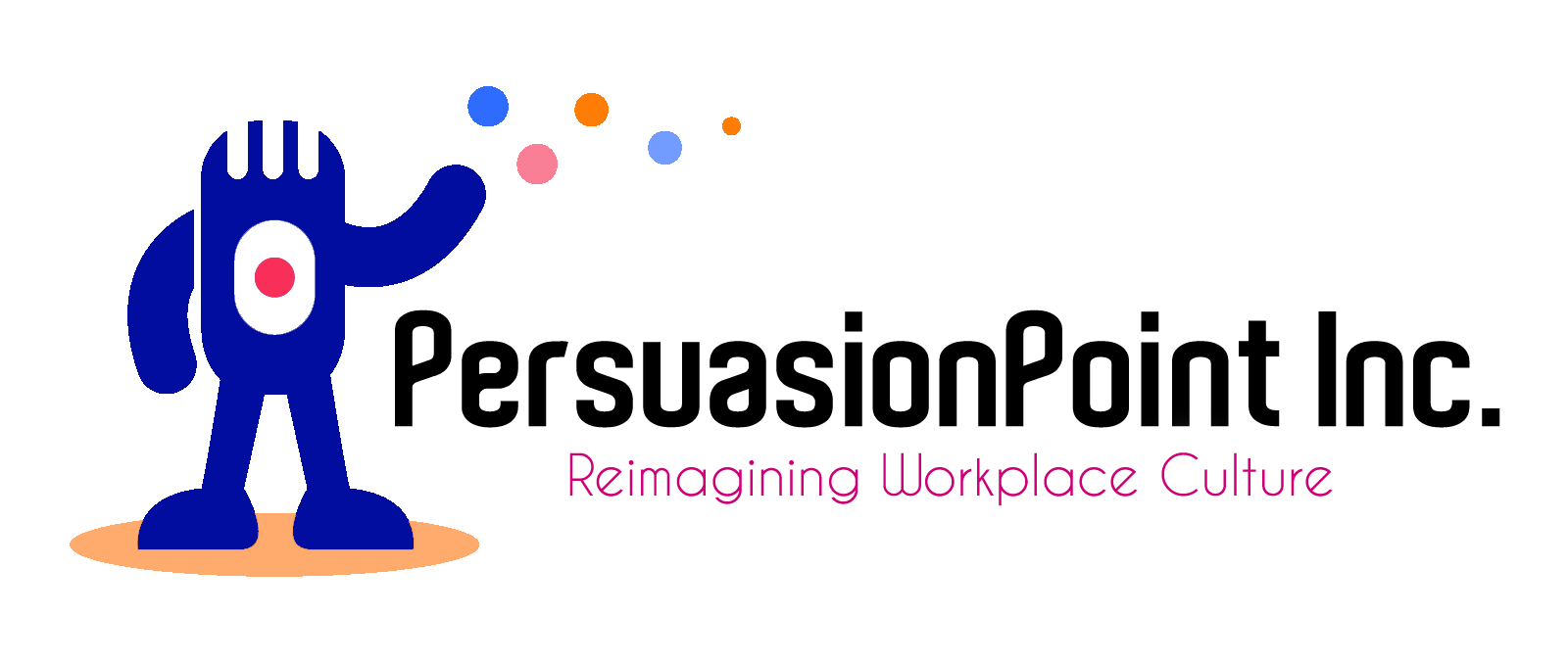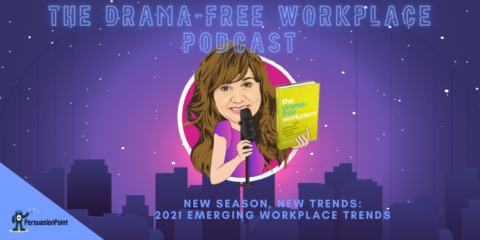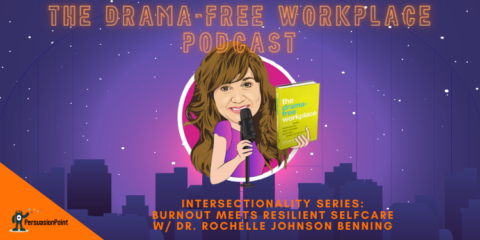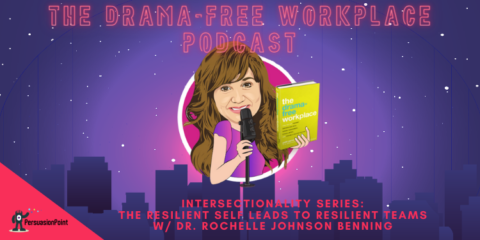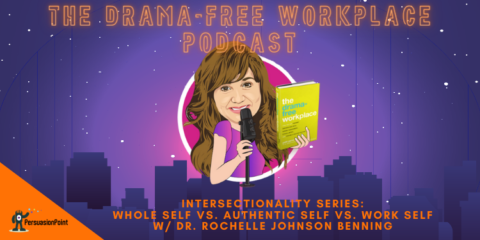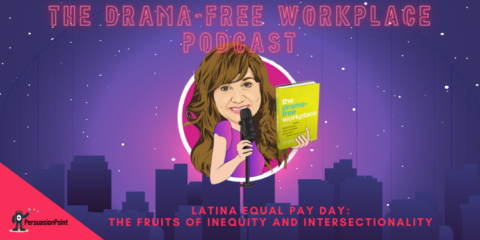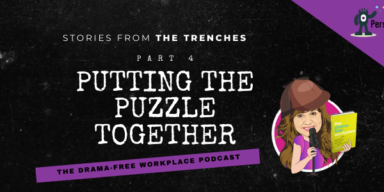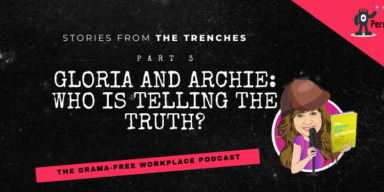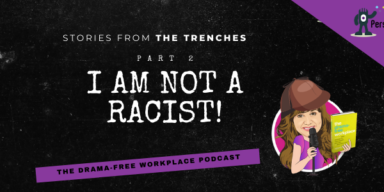Written by Jenn Treado
This article is part of our Alive After ‘85 Series | This is part 1 of 3
The writer (hi, hello!) of this blog post comes to the topic of flexible workplace opportunity from a place of white, cishet, able-bodied female privilege. The experiences relayed here do not count for the experiences of everyone, and should never be assumed to be the case. While these experiences were not without effort, there was ease granted because of privilege and what one does with their privilege is always top of mind for the writer.
I am an (elder) millennial introvert, and to say I had wanted to and began working remotely before it was cool is an understatement. Since graduating with my undergraduate degree in IT in 2011, I’ve sought remote work with high intensity. After many office gigs and a graduate degree, I finally took the plunge in April of 2019. (April 1st, to be exact, which is amusing in its own right – not only for the April Fool’s, but because the move meant I kept my benefits for that month. This is what I’d call a ‘protip’ for younger workers that don’t necessarily know).
But let’s back up. This post is about workplace flexibility and the foundational values of what a worker such as myself seeks, why we’re willing to sacrifice what prior generations would prize, and why I said goodbye to the 9-5 in exchange for agency and freelance-esque marketing work.
The hope here is that my one account will help workplace leaders understand what it is my generation might be drawn to in efforts to retain our talent, and to inform what our successor generation, Gen Z, might be bringing with them. It’s becoming increasingly obvious (in politics, for starts) that there is a disparity – or divergence – of awareness that different generations value and are motivated by different things, and those characteristics play heavily into the workforce and workplace behavior.
Instead of fueling that fire and widening the disparity by pointing fingers and blaming, I’d like to be a bridge because I know not everyone can, or even wants to, cut corporate ties like I have. For many, a 9-5 is exactly what they want for their career and I’d like to see my peers and colleagues, who want to work in corporate, experience more job satisfaction, more authentic workplace cultures, and more career fulfillment.
So, is that enough preamble for you? Ok, let’s dive in.
Stability → Growth
I say stability, but what I really mean is long-term employment. I think, by now, most leaders understand that young workers aren’t following the same path as those that came before, both in the workplace and outside of it. And that may be because of external factors and/or personal choices. We didn’t, in general, start families as early as older generations. We didn’t, in general, buy houses as early as older generations. And we aren’t, in general, interested in the 20-40 year career with a single organization.
I’m not an expert, but my personal feelings on this are simple: I entered college in 2008 (two years after my peers because I decided to run off to Canada, get married, and then, subsequently, divorced because it was too soon/I was following footsteps that weren’t mine). Due to these choices, I was largely unaffected by the 2008 economic downturn because I was shielded in the ivory tower by student loans, an on-campus work-study paycheck (and later an additional internship paycheck), and an extra $100 in the mail every month from midwestern middle-class parents.
However, that doesn’t mean I didn’t also adopt the mistrust my generation has for corporations, and that mistrust has translated over into my workplace longevity habits.
Hopping companies every 2-5 years is common, or was when my generation entered the workforce. It’s still common for me because things like pay and benefits (topics to be covered!) are no longer enough to keep me interested. They’re nice, but they don’t fill me with a satisfying sense of fulfillment. And so, I’m willing to sacrifice some stability (within reason, I do still have bills to pay) in order to keep my fire burning brightly.
We’re a generation who saw our collective parents give up their flame to companies who, for lack of better phrasing, couldn’t give two shits about them. This isn’t an original thought in workplace theory, so it shouldn’t come as a shock. And it also shouldn’t be shocking that, because of the economic crises that shaped our relationship with money and work, uncertainty isn’t a driving force in our decision-making. (Also see: How the COVID-19 pandemic will shape career and workplace decision-making. We may see the exact opposite behavior, we may see even more of it. We may see something completely unexpected).
As Jim Carrey – a Gen X-er with a Millennial soul – once said, “I learned many great lessons from my father, not the least of which, was that you can fail at what you don’t want. So, you might as well take a chance on doing what you love.”
Tip #1
My cousin worked for a Berkshire Hathaway company, and one of the things that kept her there for 7+ years was that they require internal movement. It’s built into their business. One way to hold the interest and retain the talent of younger generations could be:
Providing opportunities to explore other areas of business in a way that is less about us stepping forward and requesting a department transfer, and more about the concept being baked into the way a business operates and values curiosity and growth.
Up next: Compensation → Equitability
About the Author
Jenn Treado is known as the woman behind the curtain at PersuasionPoint. She handles the backend tech of all things, from marketing to email to website. Jenn’s B.A. in Computing and Information Technology and M.F.A. in Creative Writing & Poetics makes her a very practical visionary. Her keen eye, sharp observations and sensitivity ensure our clients’ concerns are understood and resolved through lenses of fairness and open communication, while protecting their anonymity and safety. She loves her work with PersuasionPoint because the company’s passion for accessibility, kinship, and space-holding represents a deep-rooted value alignment. She’s an INFP, 4w5, and her super power is listening.

About PersuasionPoint
Patti Perez is founder and CEO of PersuasionPoint, a modern-day consulting firm dedicated to teaching leaders and teams how to create and sustain healthy, equitable and inclusive workplace cultures. Patti is the best-selling, award-winning author of The Drama-Free Workplace (Wiley 2019), and draws from the book’s themes to provide practical, authentic, and action-oriented solutions to help companies achieve true diversity and equity, and to create environments of belonging and inclusion.
Patti and the team provide services specifically tailored to address workplace struggles with recruiting, retaining, promoting and fully valuing diverse employees – including consulting, leadership training, and boot camps for diverse attorneys who are emerging leaders.
Contact Patti here or email her directly at Patti@PersuasionPoint.com.
